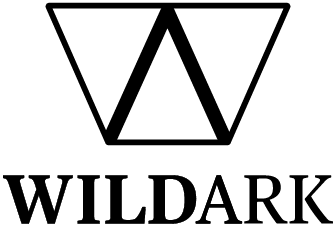Protecting wildlife around the world is becoming increasingly more difficult; rangers must now be combatants, and custodians of natural resources need the skills to tackle the increasingly tough times ahead.
Having immersed ourselves in the local community on the edge of the Greater Kruger National Park, the frontline of conservation in South Africa, for the better part of 2017; the reality of the poaching crisis was impossible to ignore.
Daily, the WildArk team would encounter anti-poaching teams driving in and out of town, helicopters and anti-poaching surveillance aircraft circling in the sky, not to mention the latest rhino fatalities on everyone’s lips.
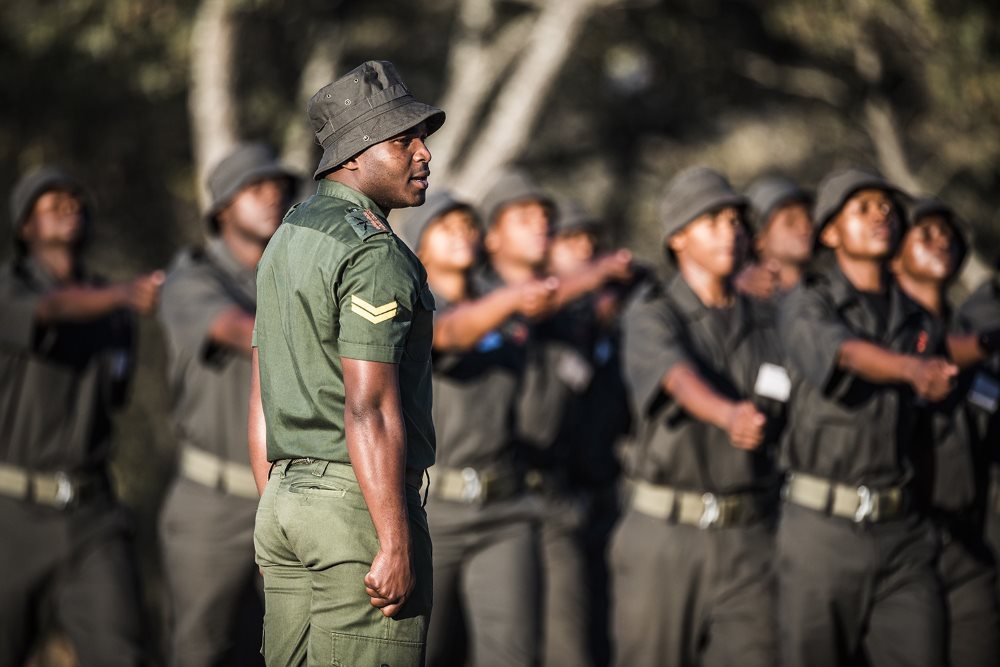
The SAWC trains students from all over Southern Africa as well as internationally. © Peter Chadwick/SAWC
During this time, we met all manner of individuals and groups working to protect precious wildlife in the region.
One such organisation was the Southern African Wildlife College (SAWC). Home to the Greater Kruger Protection Foundation’s (GKEPF) command and control centre, the college equips custodians of natural resources with the support and skills needed to conserve and sustain Africa’s natural heritage.
Specialising in conservation education, training and skills development as well as wildlife management, the SAWC provides training to students across Southern Africa as well as internationally, with up to 2000 students trained per year. However, the poaching crisis has put an even greater responsibility on the SAWC to equip their students with the appropriate skills to tackle poaching at every level.
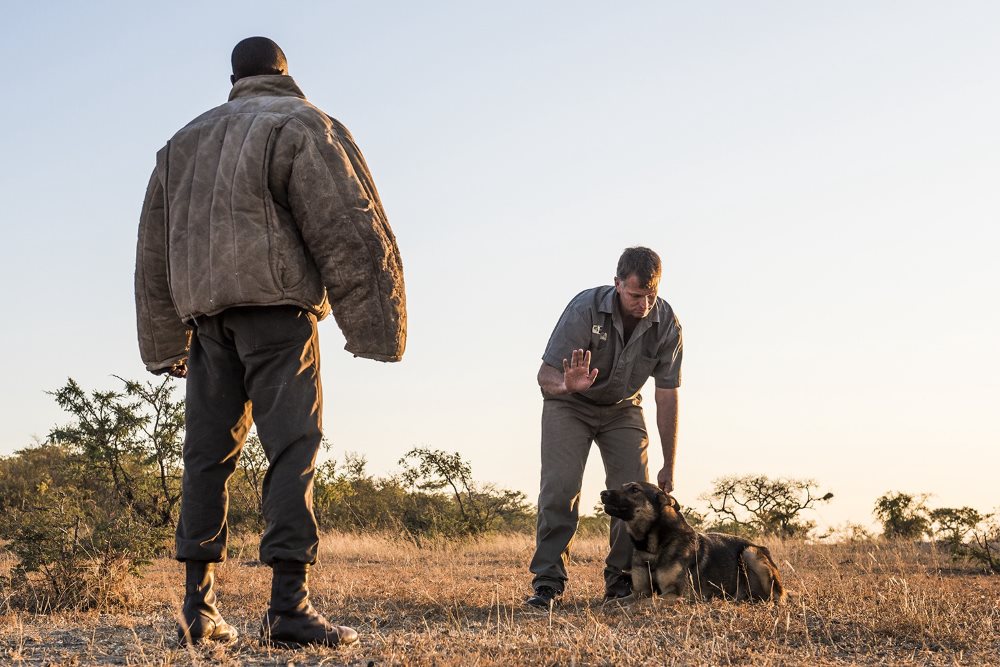
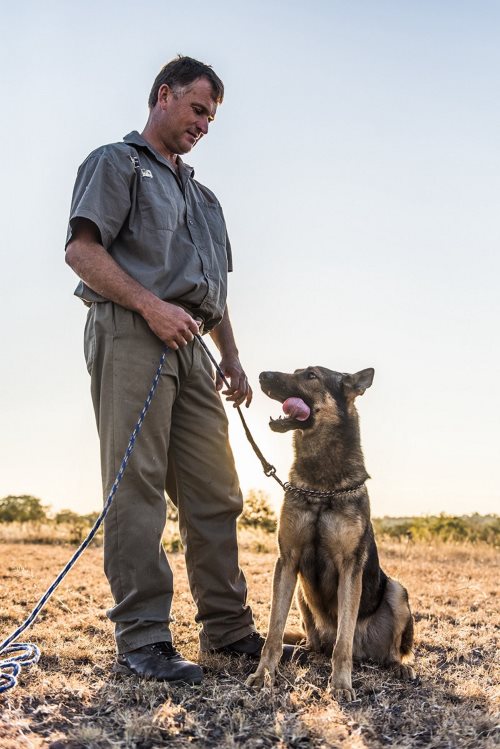
The SAWC’s K9 Unit adds tracker and apprehension dogs to field ranger teams to help them counter wildlife crime. © Peter Chadwick/SAWC
A four-tier approach is their modus operandi, and it has proven successful. The college equips field rangers with the necessary skills to help counter the onslaught of wildlife crime in the region; its air wing unit provides aerial surveillance to plot and monitor rhino movements and suppress poachers; its K9 unit adds tracker and apprehensions dogs to field ranger teams and; its community engagement projects engender support and buy-in from local communities for wildlife protection.
Additionally, the college’s anti-poaching initiative works with other key partners to help bolster five key tactical areas which support rhino conservation including building resilient rhino populations through field conservation; engaging local communities in wildlife conservation; strengthening law enforcement activities and; developing bilateral co-operation between South Africa and transit and customer countries to reduce the demand for illicit rhino horn.
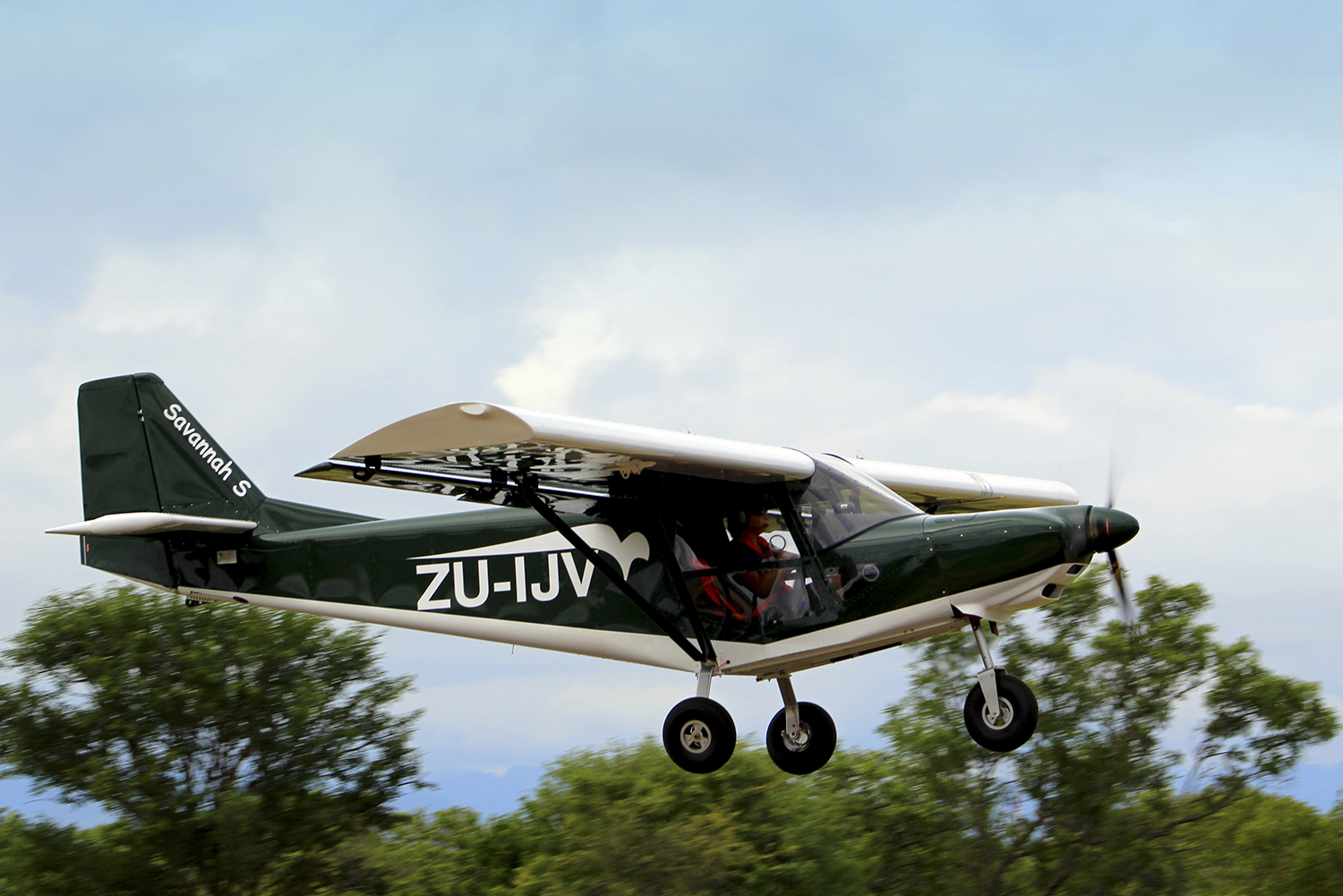
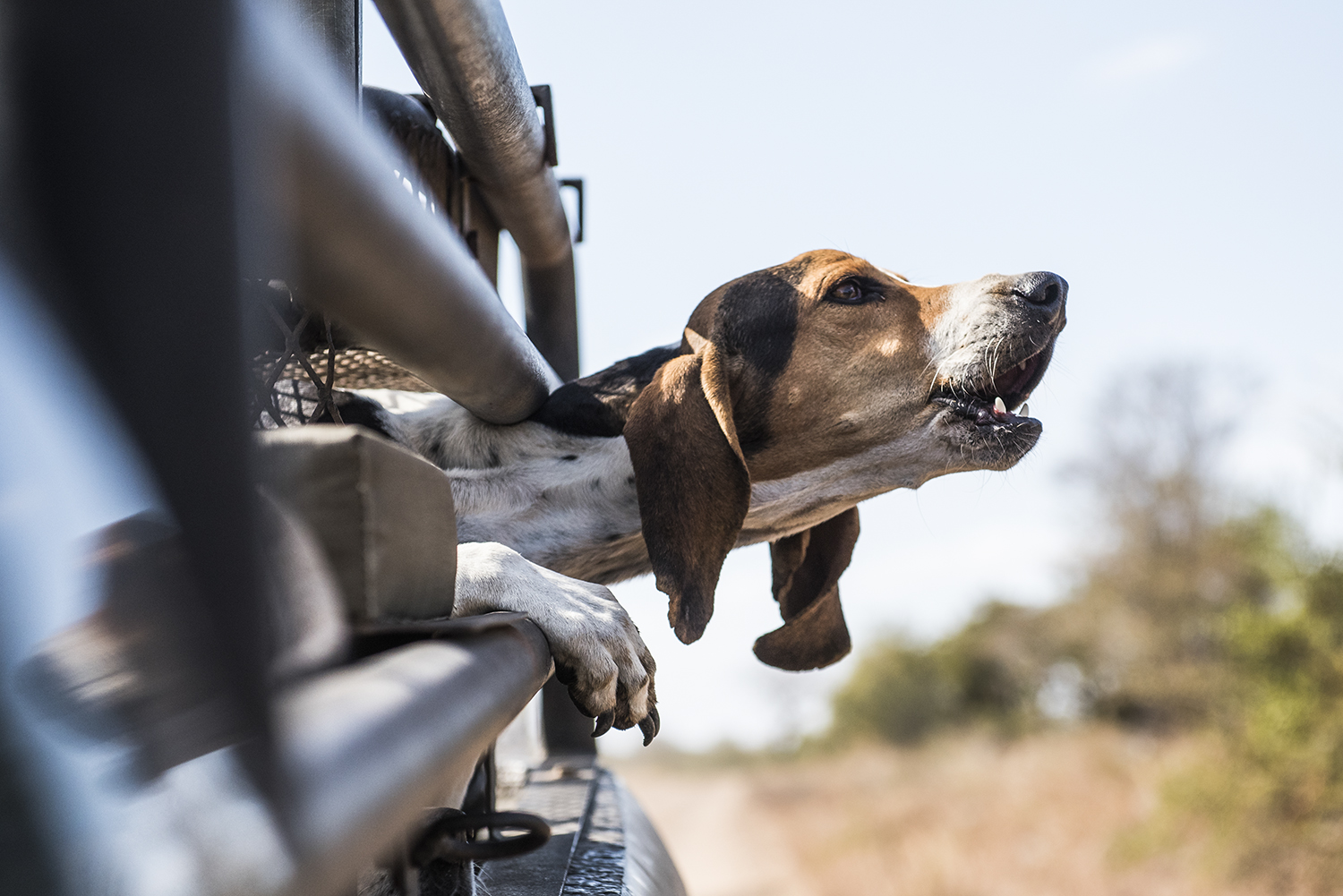
(Left) The SAWC’s Savannah aircraft is their new flagship anti-poaching aircraft. (Right) Properly trained dogs are one of the most effective anti-poaching tools. © Peter Chadwick/SAWC
In July 2017, WildArk visited the college where we witnessed firsthand the exceptional capabilities of the dogs and their handlers. The dogs are a compelling addition to the tactics of law enforcers to successfully track, apprehend and arrest poachers.
“Once properly trained these dogs have proven to be one of the most effective anti-poaching tools available,” said Theresa Sowry CEO of the SAWC. “Coupled with well-trained, equipped filed rangers, aerial support, and assistance from the community, the college is making inroads into the rhino poaching crisis, specifically in areas where this four-tiered approach is deployed.”
The SAWC Air Wing Unit is another exceptionally important unit for the college and the GKEPF. The aircraft currently work in the GKEPF where the majority of work is monitoring and suppression flights, supporting rangers in contacts and incursions and providing aerial surveillance, which in turn assists in the deployment of rangers in those areas where they are most needed.
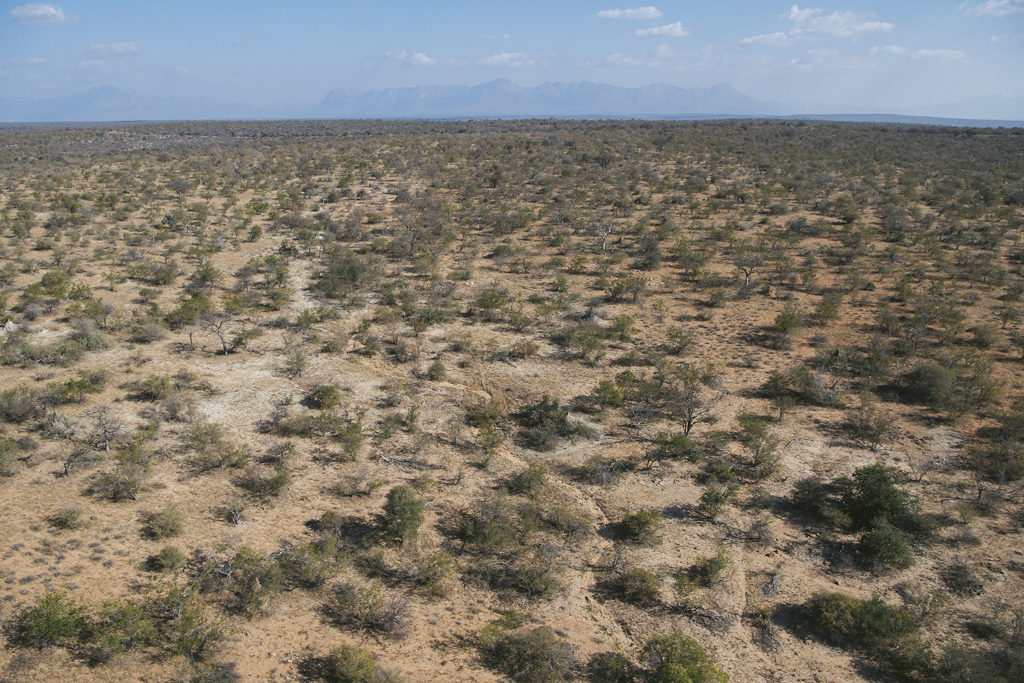
Vast terrain of the Greater Kruger Region.© Kirstin Scholtz
The Savannah is the college’s new flagship aircraft which they believe will be extremely useful in anti-poaching efforts given the increased safety and quicker response times. They hope to add more such aircraft to their fleet.
With diminishing conservation capacity throughout the region, the work of the Southern African Wildlife College is crucial in protecting Africa’s wildlife heritage. As a non profit organisation, which does not recieve government support, the College relies on the support of partner organisations as well as donors to ensure that it is able to carry out its mandate.
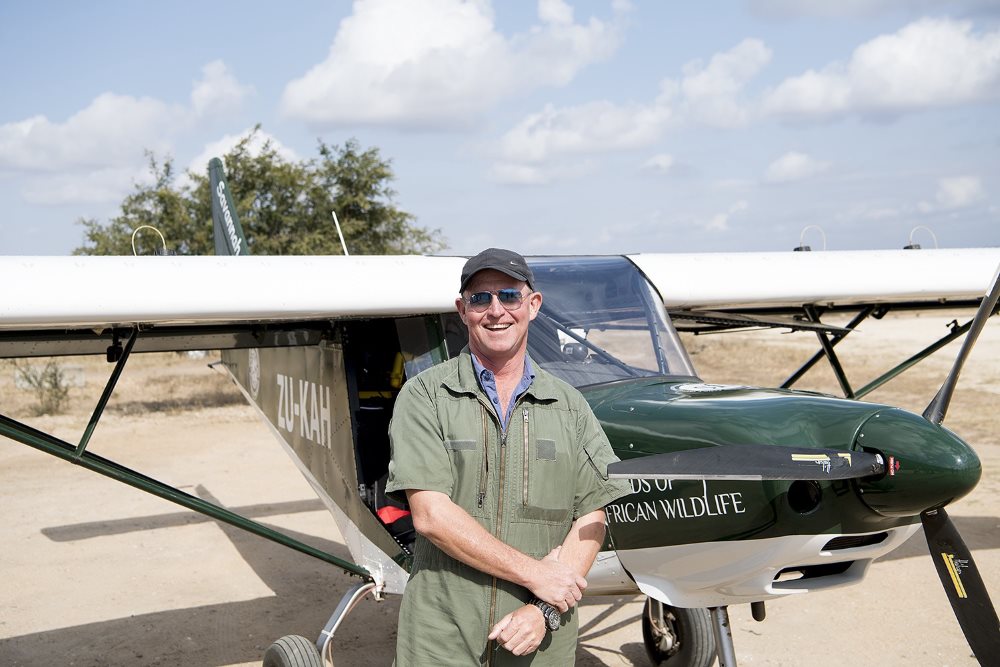
SAWC Savannah pilot Bruce McDonald. © Kirstin Scholtz
We at WildArk are particularly passionate about supporting the College’s K9 and Air Wing Units. These two projects will help ensure the survival of southern Africa’s rich biodiversity and its wildlife. With three rhino being killed every 24 hours in South Africa alone and countless other species under threat from poaching, the work of the Southern African Wildlife College is paramount.
For more information about the college visit: http://www.wildlifecollege.co.za/
